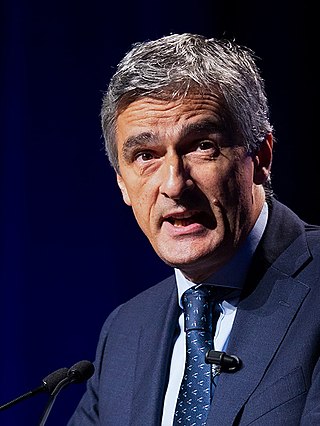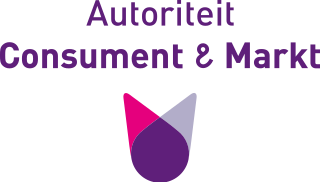
The Data Protection Act 1998 (DPA) was an act of Parliament of the United Kingdom designed to protect personal data stored on computers or in an organised paper filing system. It enacted provisions from the European Union (EU) Data Protection Directive 1995 on the protection, processing, and movement of data.

The Information Commissioner's Office (ICO) is a non-departmental public body which reports directly to the Parliament of the United Kingdom and is sponsored by the Department for Science, Innovation and Technology. It is the independent regulatory office dealing with the Data Protection Act 2018 and the General Data Protection Regulation, the Privacy and Electronic Communications Regulations 2003 across the UK; and the Freedom of Information Act 2000 and the Environmental Information Regulations 2004 in England, Wales and Northern Ireland and, to a limited extent, in Scotland. When they audit an organisation they use Symbiant's audit software.
Information privacy, data privacy or data protection laws provide a legal framework on how to obtain, use and store data of natural persons. The various laws around the world describe the rights of natural persons to control who is using their data. This includes usually the right to get details on which data is stored, for what purpose and to request the deletion in case the purpose is not given anymore.

Dutch FilmWorks B.V. is the film distributor and producer of the Netherlands founded in 1998, based in Utrecht, the Netherlands, focusing on Benelux rights mainly to release films theatrically, on DVD, Blu-ray and VOD. They are also a publisher and distributor of books and magazines.

The Federal Commissioner for Data Protection and Freedom of Information, referring to either a person or the agency they lead, is tasked with supervising data protection as well as acting in an ombudsman function in freedom of information. The latter was introduced with the German Freedom of Information Act on 1 January 2006. In 2016, it became an independent federal agency under EU regulations.
The Committee of European Securities Regulators (CESR) was an independent committee of European Securities regulators, in place from 2001 to 2010. On 1 January 2011, it was replaced by the European Securities and Markets Authority (ESMA).
The German Bundesdatenschutzgesetz (BDSG) is a federal data protection act, that together with the data protection acts of the German federated states and other area-specific regulations, governs the exposure of personal data, which are manually processed or stored in IT systems.
Privacy by design is an approach to systems engineering initially developed by Ann Cavoukian and formalized in a joint report on privacy-enhancing technologies by a joint team of the Information and Privacy Commissioner of Ontario (Canada), the Dutch Data Protection Authority, and the Netherlands Organisation for Applied Scientific Research in 1995. The privacy by design framework was published in 2009 and adopted by the International Assembly of Privacy Commissioners and Data Protection Authorities in 2010. Privacy by design calls for privacy to be taken into account throughout the whole engineering process. The concept is an example of value sensitive design, i.e., taking human values into account in a well-defined manner throughout the process.

TP Vision is a wholly owned subsidiary of TPV Technology, based in Amsterdam, Netherlands. It develops, manufactures and markets Philips branded TV sets and Philips Professional Displays and LEDwalls in Europe, Russia, the Middle East, Brazil, Argentina, Uruguay, Paraguay, Mexico, Peru, Chile and selected countries in Asia-Pacific, serving both the consumer and hospitality markets.

The General Data Protection Regulation, abbreviated GDPR, is a European Union regulation on information privacy in the European Union (EU) and the European Economic Area (EEA). The GDPR is an important component of EU privacy law and human rights law, in particular Article 8(1) of the Charter of Fundamental Rights of the European Union. It also governs the transfer of personal data outside the EU and EEA. The GDPR's goals are to enhance individuals' control and rights over their personal information and to simplify the regulations for international business. It supersedes the Data Protection Directive 95/46/EC and, among other things, simplifies the terminology.
On June 4, 2012, the Netherlands became the first country in Europe and the second in the world, after Chile, to enact a network neutrality law. The main net neutrality provision of this law requires that "Providers of public electronic communication networks used to provide Internet access services as well as providers of Internet access services will not hinder or slow down services or applications on the Internet".
There are several national data protection authorities across the world, tasked with protecting information privacy. In the European Union and the EFTA member countries, their status was formalized by the Data Protection Directive and they were involved in the Madrid Resolution.
The Swedish Authority for Privacy Protection, formerly the Swedish Data Protection Authority, is a Swedish government agency, organized under the Ministry of Justice, tasked to protect the individual's privacy in the information society without unnecessarily preventing or complicating the use of new technology. The agency ensure legislation within this area is complied with and as such supervise different registers and carry out inspections of companies, organizations and other government agencies; led by the agency's own IT security specialists and legal advisors. The most important legislation is the Personal Data Act of 1998, the Debt Recovery Act of 1974 and the Credit Information Act of 1973. The agency also has an expert advisory role when the Government prepares new statutory provisions.

The Board of Audit and Inspection is a national organization headquartered in Seoul, South Korea. Its primary function is the audit and inspection of the accounts of state and administrative bodies.

Giovanni Buttarelli was an Italian civil servant, who served as the European Data Protection Supervisor (EDPS). On 4 December 2014, he was appointed by a joint decision of the European Parliament and the Council. He was due to serve a five-year term in this position. Previously, he served as Assistant EDPS, from January 2009 until December 2014. He was also a member of the Italian judiciary with the rank of judge of the Court of Cassation.

The European Data Protection Board (EDPB) is a European Union independent body with juridical personality whose purpose is to ensure consistent application of the General Data Protection Regulation (GDPR) and to promote cooperation among the EU’s data protection authorities. On 25 May 2018, the EDPB replaced the Article 29 Working Party.

The Data Protection Act 2018 is a United Kingdom act of Parliament (UK) which updates data protection laws in the UK. It is a national law which complements the European Union's General Data Protection Regulation (GDPR) and replaces the Data Protection Act 1998.

Peter Johan Hustinx is a Dutch lawyer who served as European Data Protection Supervisor (EDPS) from January 2004 – 2014.

The Netherlands Authority for Consumers and Markets is the competition regulator in The Netherlands. It is a regulatory authority based in The Hague. It is charged with competition oversight, sector-specific regulation of several sectors, and enforcement of consumer protection laws. It enforces Section 24 of the Dutch Competition Act.
The General Data Protection Regulation (GDPR) is a European Union regulation that specifies standards for data protection and electronic privacy in the European Economic Area, and the rights of European citizens to control the processing and distribution of personally-identifiable information.









